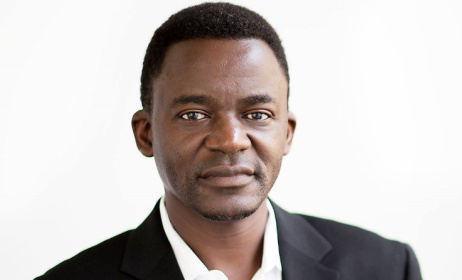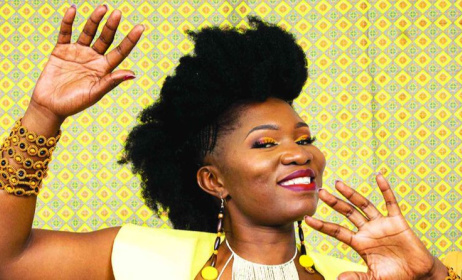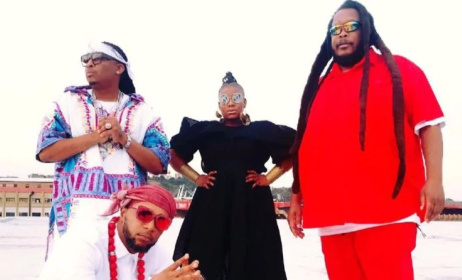ZIMU Gender at Work Conference sparks dialogue on equality in the arts
The Zimbabwe Music Union (ZIMU), in collaboration with the Intwasa Arts Festival, hosted its first-ever Gender at Work Conference in Bulawayo on 25 September. Held at the Bulawayo Club, the event brought together more than 100 creatives from music, theatre, film, and other disciplines to reflect on gender dynamics in the arts sector.
 Film producer and director Rumbi Katedza, musician and lecturer Tina Watyoka, and university lecturer Dr Richard Muranda during a panel discussion at the ZIMU Gender at Work Conference.
Film producer and director Rumbi Katedza, musician and lecturer Tina Watyoka, and university lecturer Dr Richard Muranda during a panel discussion at the ZIMU Gender at Work Conference.
The programme opened with a poem titled My Sex is Bleeding by ZIMU vice-president Chioneso Rutsito, setting a reflective tone. Master of ceremonies and media professional Nyaradzo Makombe then invited ZIMU president Edith Katiji to deliver the opening remarks. Katiji emphasised the importance of creating an environment where participants could speak freely.
“Please understand that this is a safe space where you will speak freely with no intimidation and no fear, because whatever you are going to say in this room is not going to stay in this room, but do not be intimidated,” she said. “I think it’s time for us to start speaking the hard talk, because it’s important for us to move forward.”
Katiji added that although Zimbabwe has a national gender policy, the arts sector required its own framework. She also shared personal experiences of harassment and vulnerability in creative spaces, underscoring the urgency of the discussions.
“These are situations that most of us in here might have gone through, but we are not able to talk about, and this is the time for us to talk about it, so that there are channels that allow us to report.”
Academic and research perspectives
The first panel, Knowledge, Curriculum and Cultural Shift, was moderated by Midlands States University lecturer Dr. Richard Muranda with panelists musician and University of Zimbabwe music lecturer Tina Watyoka and film producer and director Rumbi Katedza. Katedza spoke about the persistence of gendered labour in the arts:
“I had to stay in the office while the boys… were sent straight to the set. That is the whole idea of gendered labour that I even see today. Young women in my classes automatically put themselves into service positions. One of the important things… is the importance of mentorship. We need to see other women in technical positions, because once we have women there, it really does change the process.”
Watyoka, drawing from her dual experience as a musician and academic, said women often found themselves pushed to the background, sometimes unconsciously:
“I’ve been in a situation where I found myself right at the back of the room and the man at the front. It happens naturally, not because somebody told them. So, we need to cultivate in our females this spirit of being in the front, just like the same way men say, ‘I can do it.’”
Dr. Muranda closed the session by urging participants to challenge harmful practices, remarking: “Don’t protect what is wrong.”
Women’s visibility and voice
The second panel, Women in the Arts – Visibility, Voice and Value, moderated by Katiji, featured Florence Nyamazana and Angeline Domingo local artists Ruth Mbangwa and Noluntu J. Discussions revolved around representation in leadership, bias, harassment, caregiving responsibilities, and the need for mentorship networks.
The session was followed by a surprise performance from Bulawayo-based singer Novuyo Seagirl Dube, which added an artistic interlude to the conversations.
The third panel, Men in the Arts – Rethinking Masculinities and Allyship, was moderated by music producer Clive ‘Mono’ Mukundu. Panelists included Intwasa director Nkululeko Dube, playwright Raisedon Baya, promoter Max Mugaba, and others. They explored how men could play a more constructive role in challenging patriarchal norms, addressing privilege, and fostering accountability in creative spaces.
Policy, power and practice
The final panel, moderated by Makombe, focused on policy development and featured government and civic society representatives. Speakers included Trade Union Solidarity Centre of Finland (SASK) Africa representative Simião Simbine, National Arts Council of Zimbabwe director Cleopatra Dube, Gender Commission’s Dalubuhle Sibanda, Oxfam consultant Musa Sibindi, and the Ministry of Women’s Affairs representative Dominica Mringi.
Mringi encouraged artists to access funding opportunities at the ministry, while Sibanda stressed the importance of research-driven approaches in shaping policy.
The event concluded with the presentation of a Gender Policy Advocacy Brief, which introduced a working draft of a gender policy tailored to the arts sector.
A step forward
The Gender at Work Conference created a platform for candid dialogue on gender equality in Zimbabwe’s creative industries. From personal testimonies to policy considerations, the discussions highlighted the pressing need for structural change, mentorship, and inclusive representation.
As Katiji noted in her opening: “Let’s share a scope… and have this dialogue that will make our industry thrive.”






























Comments
Log in or register to post comments